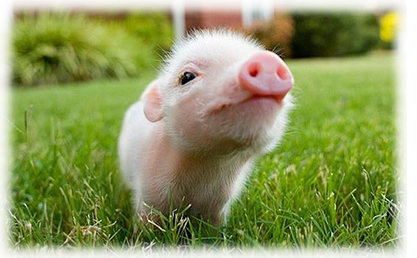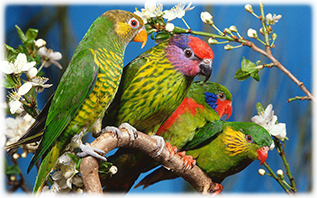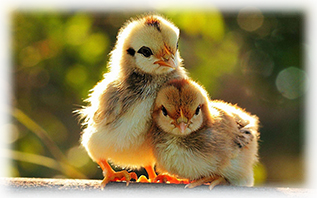A Groundbreaking Meeting on Animal Sentience and Intelligence
By the London News Group, UK (Originally in English)

From March 17-18, 2005, the landmark conference "From Darwin to Dawkins: The Science and Implications of Animal Sentience" was held at the Queen Elizabeth II Conference Center in London. Drawing over 600 participants from approximately 50 countries, it was the first time a symposium devoted to animal consciousness and intelligence was staged on such a large scale.
The first speaker, renowned animal behaviorist from Oxford University's Department of Zoology Professor Marion Dawkins, stressed the importance of considering animal welfare not only in terms of human treatment of animals, but in terms of animals' needs.
Professor Dawkins' talk was followed by a wonderful keynote speech by Dr. Jane Goodall, one of the world's leading primatologists. Relying on behavioral evidence from her 45 years of work with chimpanzees, Dr. Goodall presented convincing evidence that chimps think deeply about daily life situations and relationships with others. Extending her findings to other creatures, she called for greater awareness about how we treat farm animals and branded vivisection "morally wrong," adding that it is vital for the future of the planet that children learn about appropriate food choices.

Also, Professor Irene Pepperberg from the Massachusetts Institute of Technology summarized her work with Alex the grey parrot, who was able to master the rudiments of speech and complex cognitive concepts. Then Professor Marc Bekoff from the University of Colorado spoke about the obvious existence of animal emotions, and Professor Tom Regan of North Carolina State University discussed the moral rights of animals and "who" not "what" animals are.
Talks throughout the Conference presented abundant evidence for animal sentience and shed new light on animal intelligence, revealing that our fellow creatures are much cleverer than most people believe.
Farm animals, for instance, have long been viewed as possessing low intelligence and no sense of self, yet studies show that they display a wide range of emotions and sharp intellects.
Sheep, long ridiculed for a non-questioning herd mentality, possess a strong sense of individuality and are far more complex than previously realized, being able to recognize the faces of at least ten humans and fifty other sheep, even in profile, for at least two years. Keith Kendrick, professor of neurobiology at the Babraham Institute in Cambridge, UK, further discovered that sheep react to facial expressions and, like humans, prefer a smile to a grimace. Professor Kendrick has also described how sheep can form strong affections for specific humans, becoming depressed by long separations and greeting them enthusiastically even after three years.
Pigs were similarly found to have a cerebral capacity beyond the popular conception of a farm animal. Dr. Michael Mendl, from Bristol University, UK, has been studying pigs for sixteen years and together with his colleagues has found that swine are masters of deceit, deliberately misleading others of their kind if it will result in more food for them.
And from the same university, Christine Nicol, professor of animal welfare has found that even chickens may have to be treated as individuals with needs and problems: "Remarkable cognitive abilities and cultural innovations have been revealed," she said.
Research also shows that chickens possess an extraordinary degree of self-control over food, and are willing to delay gratification if they think a larger portion will be offered later. Chickens have also been found to display sophisticated social behavior, being able to recognize and remember more than a hundred other chickens, and expressing over thirty types of vocalizations.
Yet, the research results that may most perturb animal welfare groups are those suggesting that chickens can feel pain. Tests have shown that those known to be experiencing discomfort or lameness chose food laced with morphine when given the choice. By contrast, chickens who are fully fit chose feed that is not spiked with an analgesic.

Similarly, findings by Professor Webster and his colleagues have shown that cows have the ability to express feelings and to recognize each other. (Please refer to P. 71 of the News #157, "Animals Have Feelings Too," Say Scientists)
The conference also included presentations on ethical food choices, the progress of the international animal welfare movement and specific conditions and legislation affecting animals in the US and China. To conclude the gathering, the participants overwhelmingly endorsed the following as an ongoing animal sentience mission statement.
"This conference calls on the UN, the WTO, the World Organization for Animal Health (OIE) and their member governments to join us in recognizing that sentient animals are capable of suffering, and that we all have a duty to preserve the habitat of wild animals and to end cruel farming systems and other trades and practices which inflict suffering on animals."
Thus, "From Darwin to Dawkins: The Science and Implications of Animal Sentience" was an encouraging reflection of how science has come closer to recognizing what spiritual practitioners have long understood as truth--that animals possess sentience and intelligence just as humans do. In coming decades this knowledge will surely have a profound impact on humans' treatment of animals and the further spread of vegetarianism. Moreover, such events reveal how greatly and rapidly Master has raised the consciousness of humankind and the animal kingdom through Her incessant work, love, blessings and grace.